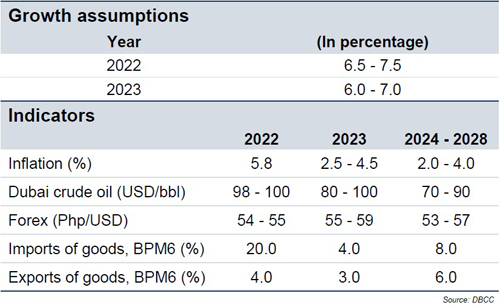Business and civic groups have expressed their concern over the planned Maharlikwa Wealth Fund (MWF) and its possible impact on the social pension funds, the country’s credit rating and the independence of the central bank.
In a joint statement of the Foundation for Economic Freedom, Competitive Currency Forum, Filipina CEO Circle, Financial Executives Institute of The Philippines, Institute of Corporate Directors, Integrity Initiative Inc., Makati Business Club, Management Association of the Philippines, Movement for Good Governance,
Philippine Women’s Economic Network , UP School of Economics Alumni Association and
Women’s Business Council Philippines Inc. proposed that in place of this SWF, “the executive and legislative branches (should) continue to implement existing initiatives to strengthen… transportation, public health, education and infrastructure, especially digital and agriculture, that can boost productivity and lower inflation.
“ These initiatives can be executed within existing legal framework, without resorting to an untested approach with many potential infirmities,” they said.
The groups raised their reservations against the MWF on the principles of fiscal prudence, solvency of social pension funds, contingent liabilities, monetary independence of the Bangko Sentral ng Pilipinas
(BSP), government in the economy, and transparency.
George Barcelon, president of the Philippine Chamber of Commerce and Industry (PCCI) in a television interview said the proposal should be put in the back burner “because we don’t want to go into something that might affect our credit standing.”
“Financing of the (fund) has come into question, plus there is uncertainty in the financial market due to geopolitical concern sand the recent crypto currency fiasco. The government must make due diligence,” Barcelon said in a text message.
Barcelon said with a good credit standing, the Philippines gets preferential or lower rates of foreign banks, so that “I think it’s more important for us to maintain a good credit standing (and not get into something that we do not know if) this will really fly or not.”
He added both the Social Security System (SSS) and the Government Service Insurance System (GSIS) which are donating a big chunk of money to the fund are themselves having some liquidity concerns.
In their joint statement, the business groups said the Philippines has neither commodity-based surpluses nor surpluses from external trade and state-owned enterprises which are the foundation of any sovereign wealth fund (SWF).
The groups noted with economic recovery, the country is experiencing large deficits and that the priority for revenues generated by the national government and government and controlled corporations (GOCCs) revenues is to cover public expenditures to keep the fiscal deficit and public debt from increasing further and undermining the delivery of public services.
The groups also expressed alarm over the proposal that require the Land Bank of the Philippines (LBP) and the Development Bank of the Philippines (DBP) to fund the SWF on the ground that they invest in government securities.
“(This) is in no way a creation of wealth. The LBP and DBP deposits exist because of the requirement for GOCCs to deposit their funds in government financial institutions….there is no generation of new deposits, but mere round tripping when funds of the LBP and DBP are diverted to the SWF,” they said.
The groups echoed observations that the funds of the SSS and the GSIS belong to the members and are intended to pay for pension liabilities, benefits, salary, and housing loans of their members.
“The primary objective of the respective Investment funds of the GSIS and SSS is therefore capital preservation with sufficient returns which demands conservative investment strategies. Currently, these strategies are properly being implemented.
Therefore, there is no reason for diverting some of the funds of the GSIS and SSS to an SWF as it would simply expose the members’ retirement funds to investments in assets with additional market risks and performance risks. It is not appropriate to impose on the GSIS and SSS members such risks on their retirement funds,” they said.
The groups also noted the provision requiring the Bangkok Sentral ng Pilipinas (BSP) to contribute 50 percent of its cash dividends to the national government is “problematic in many aspects.”
“Directed investments of the gross international reserves override the BSP’s judgment on the macroeconomic and financial situation and its decision on the
appropriate allocation of its foreign assets. This is a direct assault on the constitutional mandate of the BSP as an independent central bank in promoting price stability and managing exchange rate volatilities.
“In more ways than one, the proposed SWF will create a platform for the government to actively participate and intervene in the economy, a role which administrations since 1986 have tried to de-emphasize, learning the lessons of statist interventionist economic policies which resulted then in high fiscal deficits, high debt, and large losses of government corporations,” the groups added.





